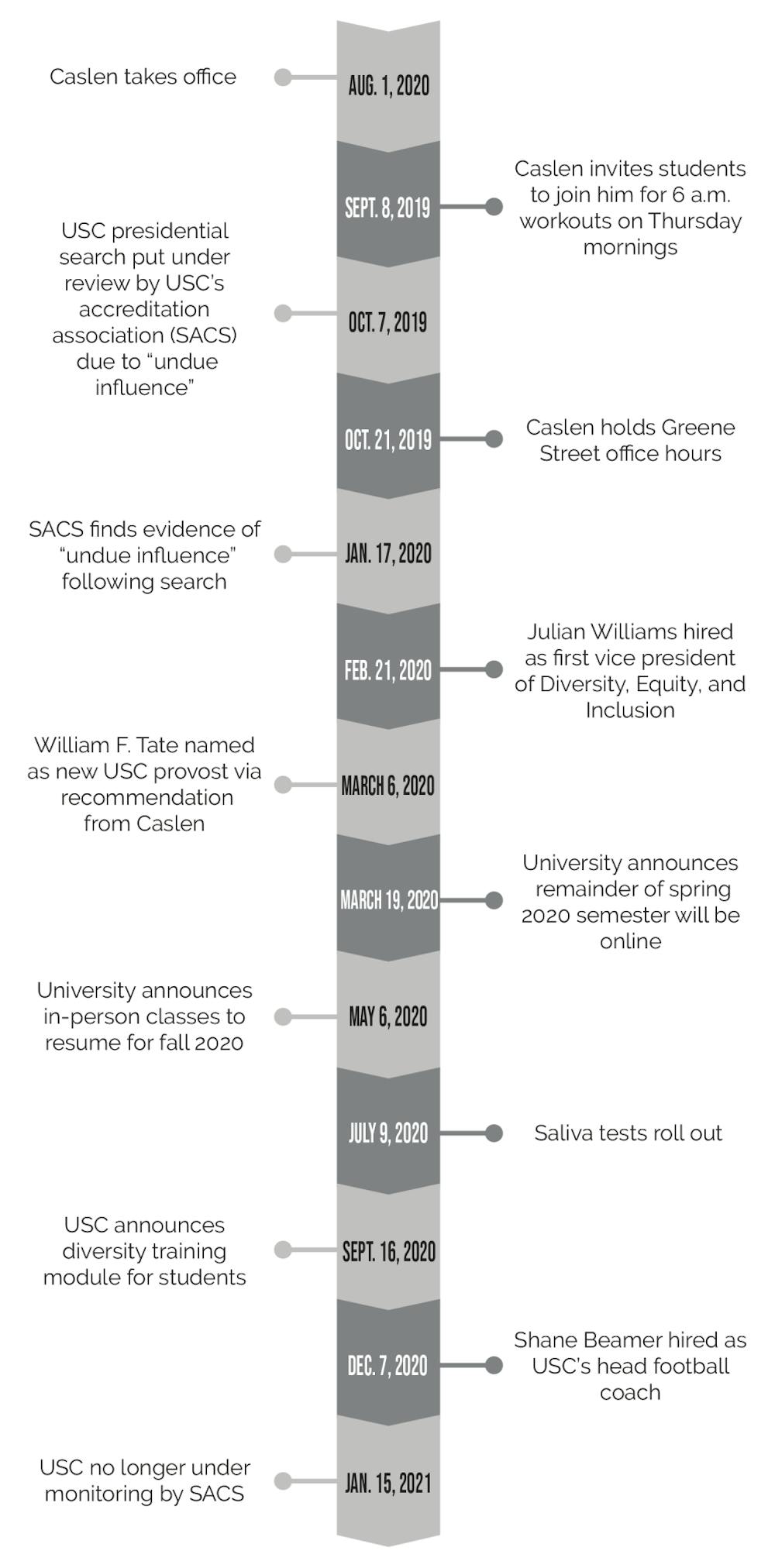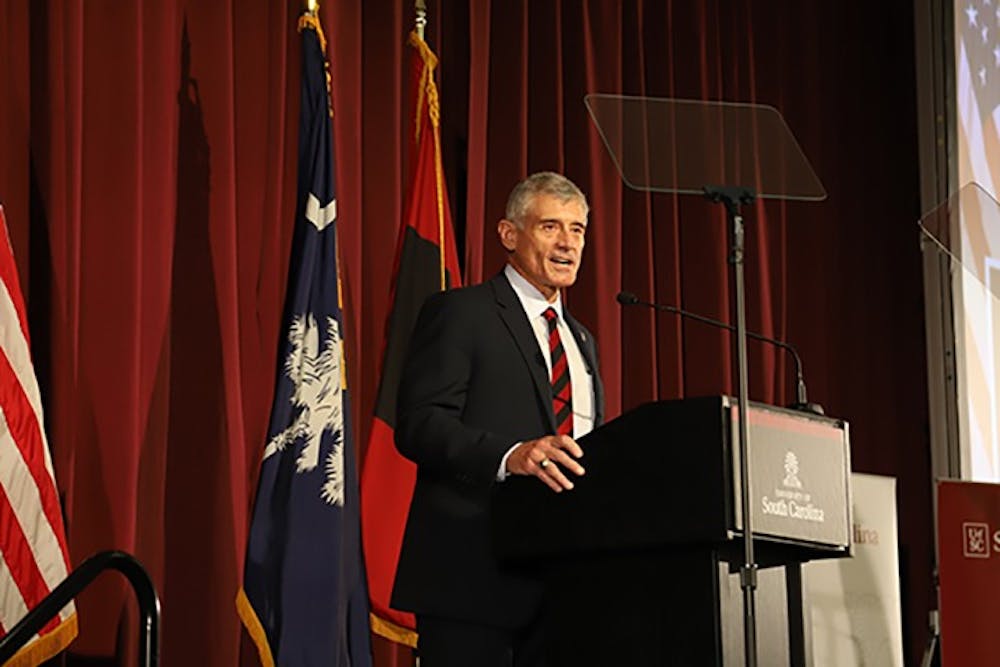From the beginning, the Caslen presidency was beset by crisis. Yet, those who’ve worked closely with USC’s president say his abilities as a leader have led to smooth sailing.
Moving to South Carolina from West Point, university President Bob Caslen made a point to sit down and talk to students — many of which opposed his election — during the morning of his first day in office.
“I wanted right away to know what was on their mind," Caslen said. "I'm here because of students ... They're the ones that I want to develop a relationship with so that I can understand what their needs are."
One of the ways he recognizes student, faculty and staff excellence is by rewarding select Gamecocks with his Presidential Coins. On the back of his coin is the university motto, “learning humanizes character and does not permit it to be cruel.”
“We could be cruel with each other on how we behave with each other and in other biases that we have. But this is a university that discourages that. This is a university that encourages learning and intellectual development to build character,” Caslen said.
Caslen also stays in tune with faculty and staff. Soon after his arrival, he gathered staffers together to talk about their visions for the future of the university. After creating a broad outline of goals, Caslen created collaborative committees where those goals could be refined into a strategic plan.
He was also quick to address the need for a staff senate, according to staff senate president Shelley Dempsey.
“That’s been, I think, one of the most important things he’s done — is utilizing staff on committee work and in meetings,” Dempsey said.

Caslen said by collaborating with deans and other executive university members, he was “building ownership across the entire institution.”
“The skillset is to build from the bottom up, so that you can have — build a collaborative effort that creates buy-in,” Caslen said.
Dempsey’s first impression of Caslen was that he was a willing partner, she said.
“I find that he does listen — he doesn’t just hear. You know he's there — not just the formality of hearing what we say, but listening to what we say and then using that to inform his decisions,” Dempsey said.
The COVID-19 pandemic has shifted the landscape of the world, according to Caslen. He said with this shifting, opportunities are created.
“I wasn't going to stand by and just deal with the pandemic every single day. I had to do that anyway. I wanted to also, at the same time, keep my eyes on the strategic horizon that was shifting out there, to make sure that we positioned ourselves to be able to take care of that,” Caslen said.
Some of these opportunities have included a $3.8 billion research partnership with the Savannah River National Laboratory, a nuclear research site, and the expansion of the university's online offerings to non-residential students, which Caslen said is in the works.
The premise that "iron sharpens iron" inspires Caslen.
“If you put something under pressure, you know, that's where you really learn where your strengths and where your weaknesses are," Caslen said. "And that's where, as a result, you have the opportunity to develop some resilience and some strength of character.”
Mark Bieger, Caslen’s chief of staff, said Caslen's character was shaped by the numerous crises he dealt with during his 43 years of military service.
“He's about as calm, resolute, determined individual as you can imagine being around,” Bieger said.
At the same time, Caslen said he realizes that to get to the point of resiliency, one has to first go through hardships.
“We're all in this pandemic. We're all persevering through it. It's not fun; it's not easy,” Caslen said. “I do recognize that a lot of students are stressed because of this. And that generates some other issues, like mental health issues, that need to be addressed.”
Director of Counseling and Psychiatric Services at USC Warrenetta Mann said the pandemic is a stressor that will leave long-term effects on students, faculty and staffers.
“Typically, the more stressors you have at one time, the longer and more intense the effects would be on the person experiencing [them]. And so what we can expect from a pandemic kind of stressor is that for years to come, there will be some effects,” Mann said.
Caslen is briefed on student mental health statistics from surveys Student Health Services conducts. He said you can choose to cower and hibernate yourself in a crisis, or you can figure out how to live your life safely — that’s what he chooses to do.
“In a crisis, you can't let fear dominate your thinking. You've got to understand where risks are, and you got to figure out ways to mitigate that risk so that you can still be able to accomplish your mission,” Caslen said.

